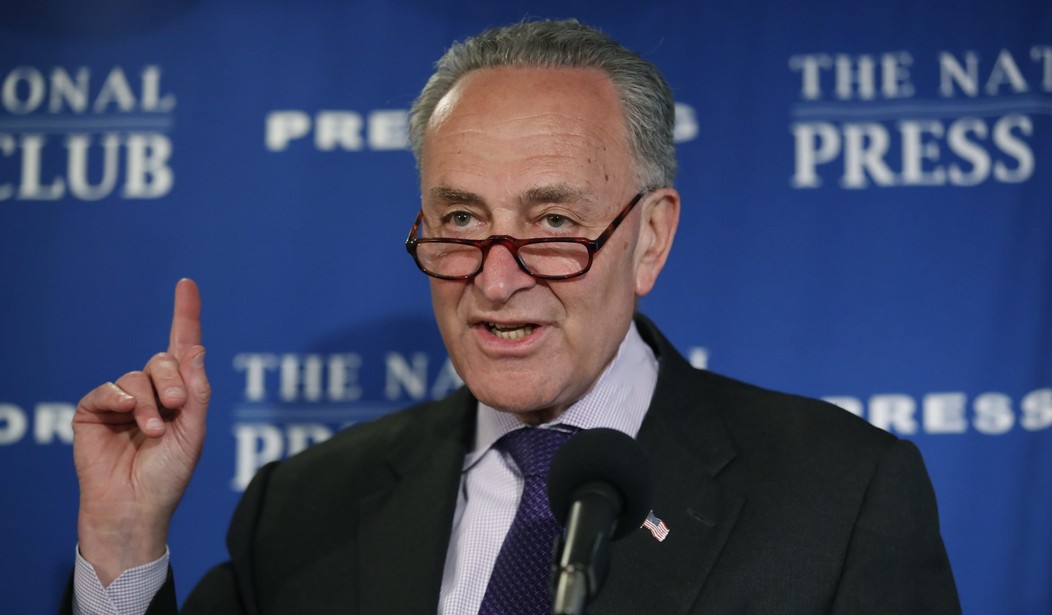Throughout the Obama years, your humble correspondent was a naysayer on the periodic calls for an “independent counsel” (a/k/a “special prosecutor”) to investigate this or that administration scandal. (See, e.g., here, here and here.) That is because there is no such thing in our constitutional system.
That has not changed just because we now have a Republican administration, meaning the media-Democrat complex finds itself demanding — rather than resisting — the appointment of an independent counsel.
Washington makes knee-jerk calls for independent counsels and special prosecutors because few pols and commentators seem to understand what these terms mean — and, of course, for reasons of both integrity and self-interest, they want to be perceived as desirous of an independent investigation that will get to the truth of whatever public controversy is involved.
To this list of the ill-informed we can now add comedian-turned-talk-show-host Bill Maher and, sadly, Congressman Darrell Issa. Mr. Maher’s savant schtick notwithstanding, it is unsurprising that he does not grasp the legal concepts involved. There isn’t much excuse, though, for Rep. Issa, a longtime House Judiciary Committee fixture. Recently interviewed by Maher about alleged connections between the Putin regime and the Trump campaign, Issa urged resort to “the special prosecutor statute and office.” Assuming he was referring to the independent counsel statute, it lapsed (along with the office created thereunder) some eighteen years ago — Democrats having found it less to their liking when Bill Clinton was caught in its crosshairs.
The independent counsel was replaced by the “United States Department of Justice Office of Special Counsel.” I provide the title in all its prolixity to highlight that the special counsel is not independent. The “special” office is part of the Justice Department and answers to the attorney general — despite Issa’s confusing suggestion (to Maher) that it be invoked so the investigation can be insulated from Attorney General Jeff Sessions, whose prominent Trump campaign role is said to be a conflict of interest.
On Thursday afternoon, Sessions announced that he would recuse himself from any investigations involving the Trump campaign — although, consistent with Justice Department practice, he did not confirm or deny that there were any such investigations, much less that there was any factual basis for a criminal probe of the Trump campaign arising out of Russian hacking operations. The announcement came as Sessions was embroiled in an overblown controversy over his confirmation hearing testimony (which I discuss here). Nevertheless, Sessions had been considering the recusal question with senior Justice officials before the controversy arose, as he had committed to do during his confirmation hearing.
Understand: Sessions’ recusal does not change our analysis. Any “special counsel” would still not be independent of the Justice Department. There is currently no basis to appoint one, and nothing from which Sessions needed to recuse himself — I’ll have more to say about that in coming days. If ever appointed, though, such a special counsel would simply meet with whomever Sessions designates to act as AG in any manners from which Sessions is recused (presumably, the deputy AG).
As a matter of constitutional law, we cannot have a truly independent counsel — as in: independent of the executive branch. The reasons for this were memorably explained in Justice Scalia’s prescient dissent in Morrison v. Olson (1988). Prosecution in our system is an executive responsibility. The Constitution vests all executive power in a single official, the president. Therefore, subordinate executive officials do not have their own power; they are delegated to exercise the president’s power, which is why they all answer to the president and may be fired by the president without cause.
Replacing the lapsed independent counsel’s office with a DOJ “special counsel” was gratuitous. The attorney general already had the power, in cases presenting a conflict of interest, to appoint a prosecutor who is permitted to conduct an investigation outside the normal chain of command, but who still ultimately reports to the attorney general (or the AG’s designee if the AG is recused), and who still may be fired by the president at any time. That is all a “special counsel” is.
Legally, there is no getting around this. There is no fourth “special prosecutor” branch of government, and it is impermissible for Congress or the courts to exercise the executive power of prosecution. Thus, in terms of perceived “independence,” the “special counsel” is a matter of trust: Do you believe that the appointed lawyer is of such rectitude that he or she will conduct a thorough, impartial investigation even though he or she answers to the same executive branch that is the subject of the investigation?
There are many lawyers of great probity as to whom you might say, “Yes.” But you would be saying it because of the reputation of the lawyer in question, not because of the way the appointment was structured.









Join the conversation as a VIP Member